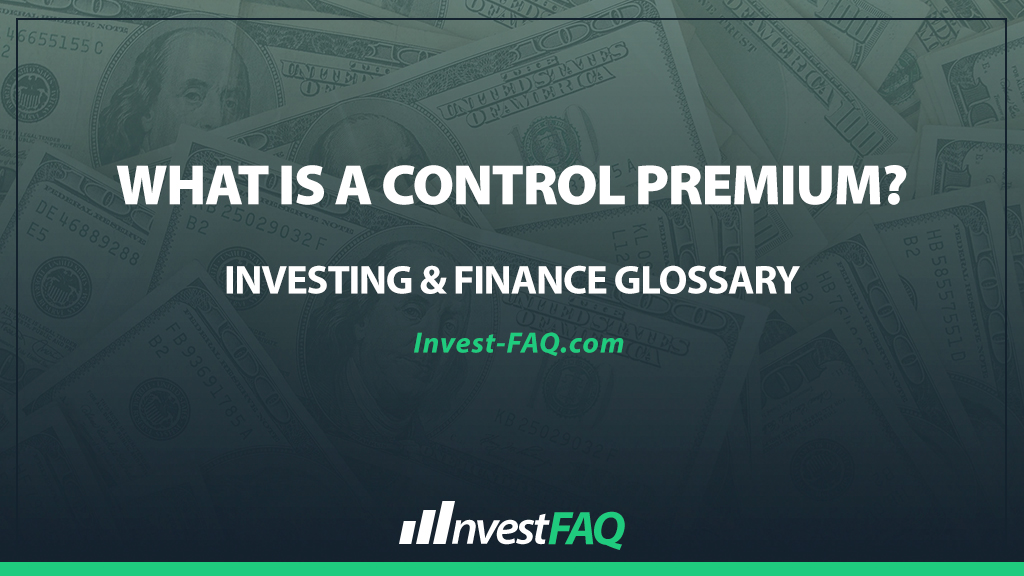
Control Premium
Contents
A control premium is the additional amount an investor is willing to pay over the current market price of a share to acquire a controlling interest in a company. This premium reflects the value of gaining influence over business decisions and operational policies.
In business transactions, especially mergers and acquisitions, the control premium is a pivotal concept.
It quantifies the value that an acquirer believes controlling the company will bring, including the ability to direct business strategies, financial practices, and potential synergies that can be realized post-acquisition.
Example of a Control Premium
Suppose “GHI Electronics” has shares currently trading at $100 each. An acquiring company, “JKL Innovations,” believes that by gaining control, it can implement strategic changes that will enhance the company’s value. JKL Innovations decides it’s willing to pay $130 per share, representing a control premium of 30% over the current market price.
In this scenario, the control premium of 30% ($30 on a $100 share) is justified by JKL Innovations’ assessment of the potential benefits from controlling GHI Electronics.
These benefits could include restructuring the business, accessing new markets, or leveraging economies of scale. The premium reflects JKL’s confidence in its ability to enhance the company’s profitability and operational efficiency beyond the status quo reflected by the current market price.
Types and Uses in Business Scenarios
Control premiums are relevant in various business scenarios, including:
Mergers and Acquisitions (M&A): Buyers pay a control premium to acquire a majority stake, enabling them to make unilateral decisions.
Private Equity Investments: Private equity firms may pay a control premium to obtain significant influence over the operational direction of a target company.
Joint Ventures and Strategic Partnerships: Partners may pay a premium to ensure decision-making authority in new ventures.
The magnitude of the control premium can vary significantly depending on the perceived value of control, the strategic fit of the target company, and market conditions.
Significance for Investing & Finance
The concept of a control premium is significant in accounting and financial reporting for several reasons:
Valuation: It affects the valuation of companies, particularly in preparing for transactions. Accounting professionals must consider the control premium when evaluating offers to buy or sell a business or its segments.
Financial Analysis: Understanding control premiums is essential for analysts assessing the cost of acquisitions and their impact on the acquiring company’s financial health.
Disclosure: Companies involved in acquisitions may need to disclose the rationale for the control premium paid, affecting how these transactions are viewed by investors and regulators.
In summary, a control premium represents the tangible value attributed to the control and strategic direction of a company.
It plays a critical role in mergers and acquisitions, affecting negotiations, valuations, and the overall strategic decisions made by acquiring companies. Accounting professionals must carefully evaluate and account for control premiums in financial transactions to ensure accurate reporting and valuation.
FAQ
The size of a control premium is influenced by the anticipated synergies from the acquisition, the strategic importance of the target company, and the current financial performance and future growth prospects of the target.
A control premium is often offered in mergers and acquisitions when the buyer aims to acquire a controlling interest, reflecting the value of gaining decision-making power and strategic control.
A control premium is calculated as the percentage difference between the offered price for acquiring a controlling stake in a company and the current market price of the company’s shares prior to the acquisition offer.
Yes, the announcement of a control premium can impact the stock price of the target company, typically leading to an increase in the share price as the market adjusts to the perceived value of the proposed acquisition.
